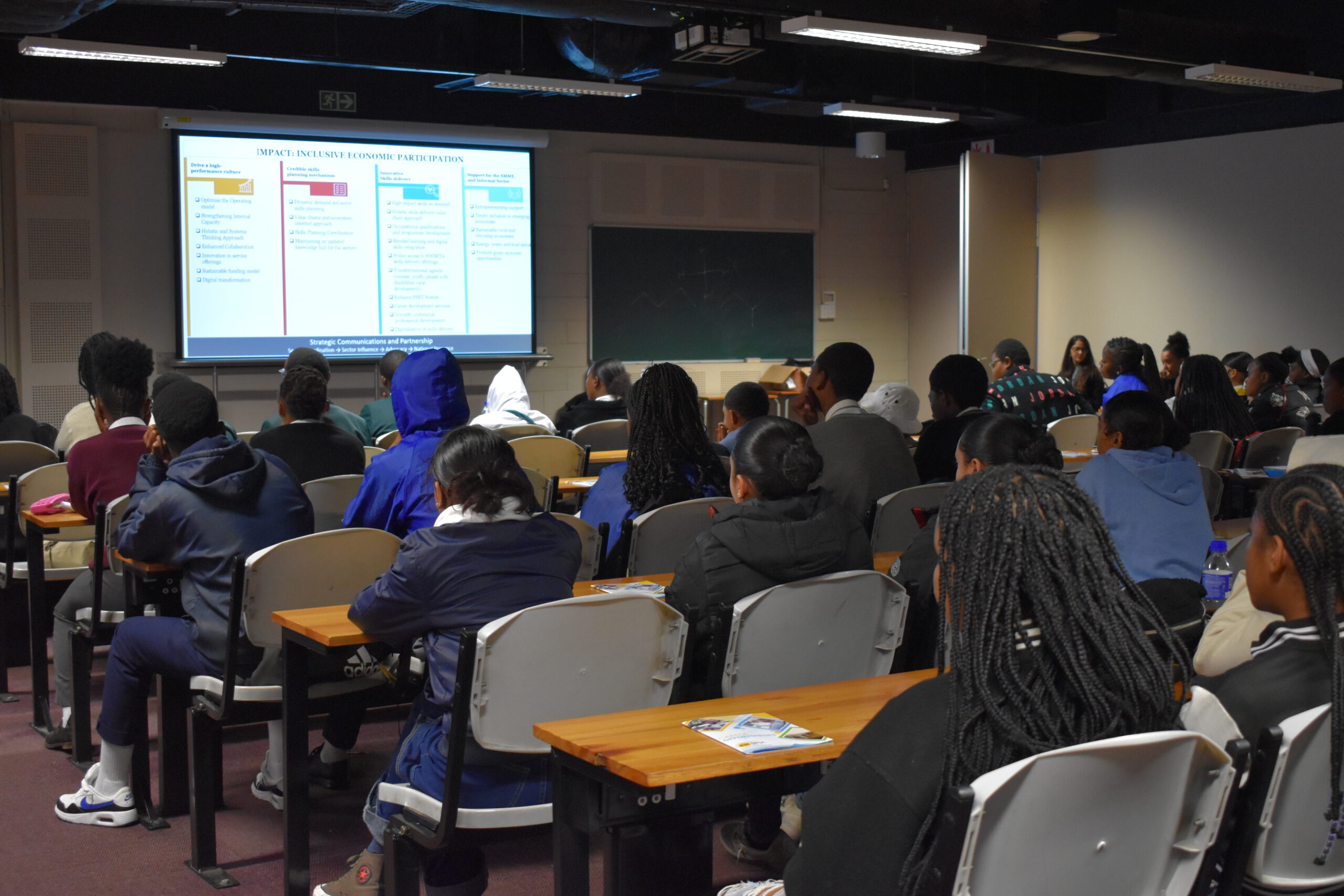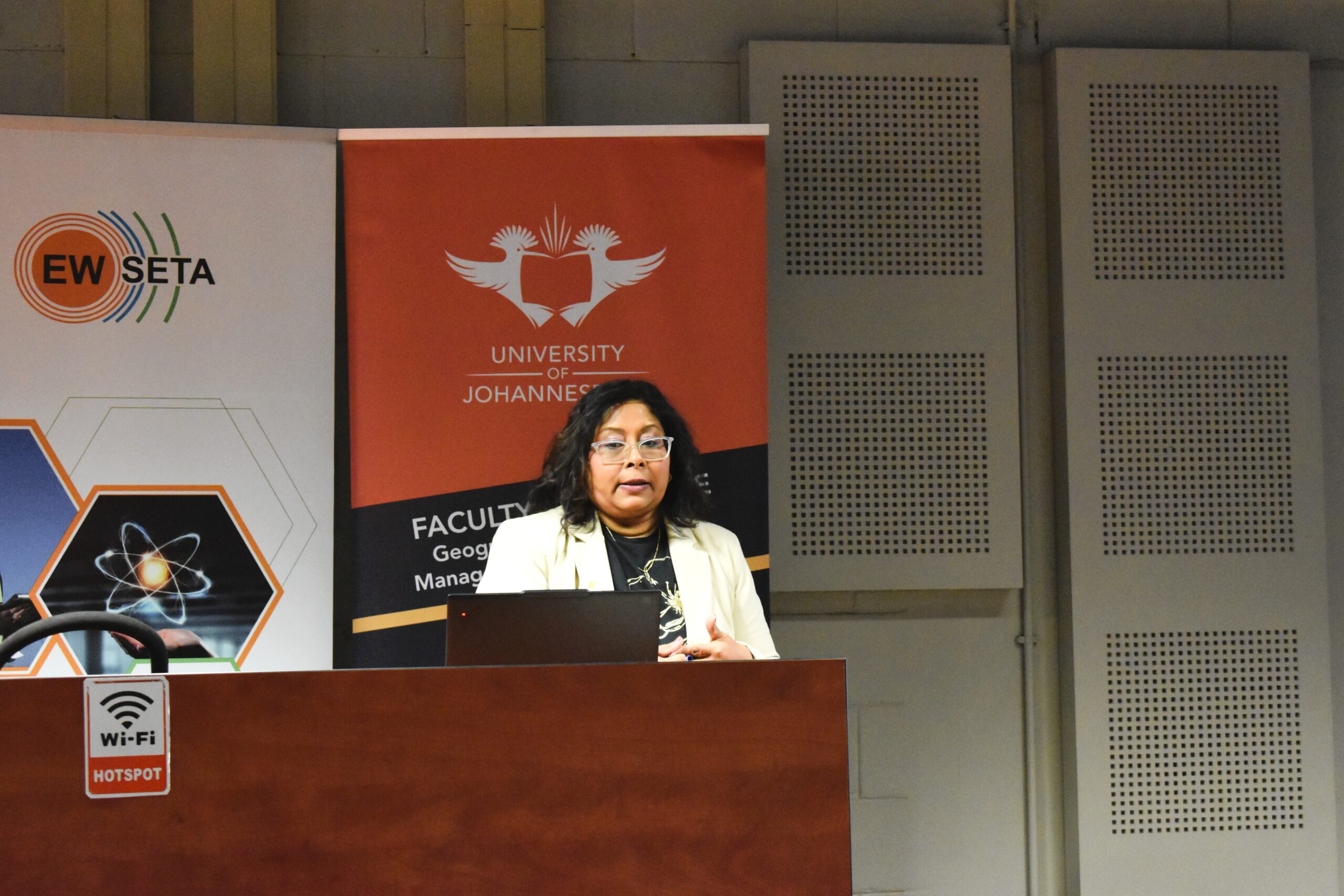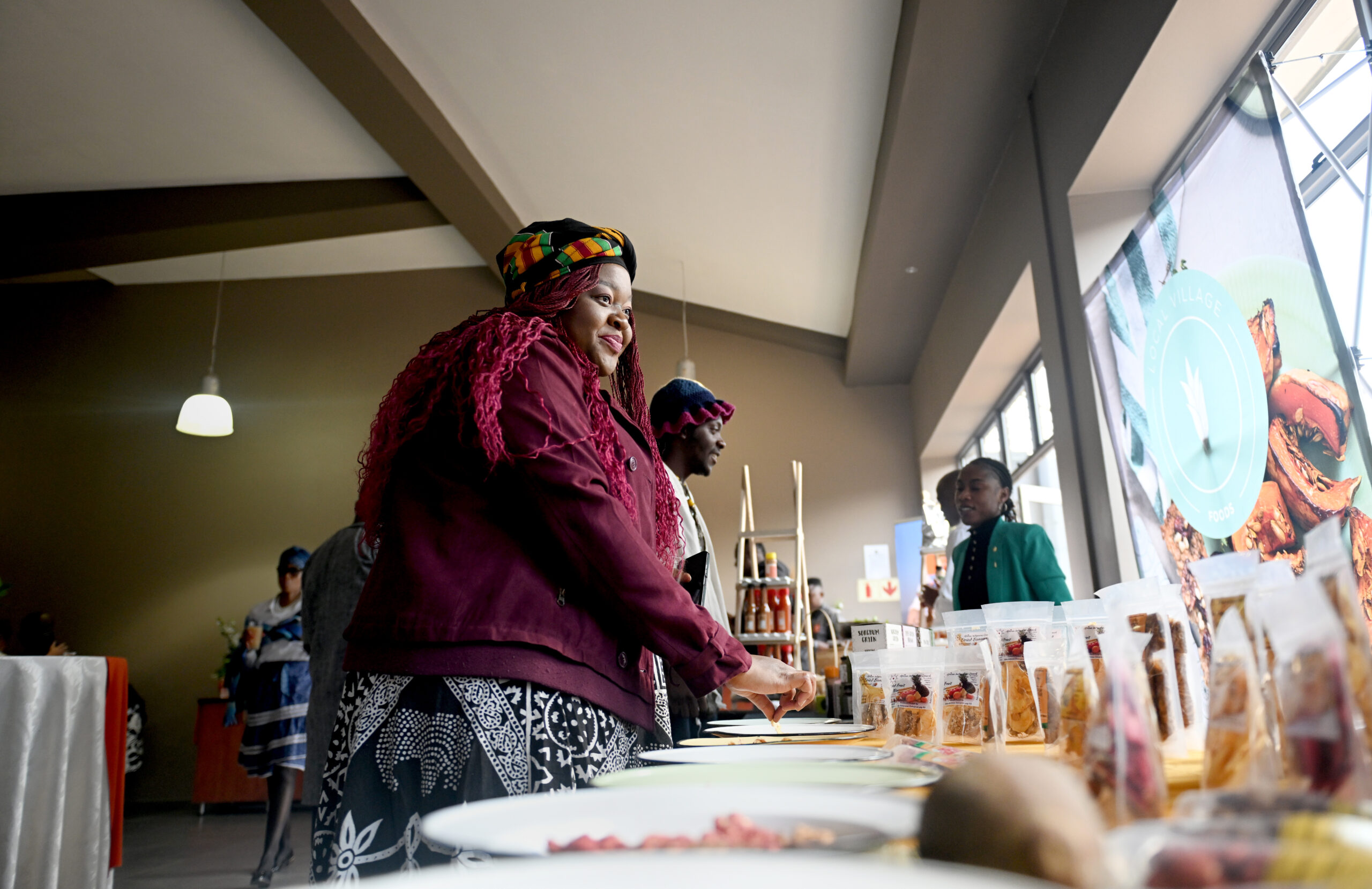The University of Johannesburg’s (UJ) Faculties of Science, Health Sciences, and Engineering hosted a Science, Technology, Engineering and Mathematics (STEM) outreach event in collaboration with various departments.

This initiative brought 100 learners and 16 teachers from underserved communities to UJ’s APK Campus, providing crucial exposure to academic and career opportunities in science, technology, engineering, and mathematics. The event was made possible through partnerships with the Chayil Foundation and the UJ Habitable Planet Schools Programme under the DSI/NRF ACCESS and Vula Youth initiative, with numerous sponsorships from the Energy and Water Sector Education and Training Authority (EWSETA).
The day began with an introduction to EWSETA and its role in advancing energy and water sector skills in South Africa. A panel discussion followed, where four STEM professionals shared their career journeys and challenges. Learners then participated in a fun, physical session connecting theory to human performance. They explored academic departments, including biochemistry, physiology, palaeontology, and robotics. Highlights included hands-on experiences and exposure to research in climate resilience, health biotech, AI, and wellness. The event sparked curiosity and showcased the UJ’s impactful contributions to knowledge, innovation, and sustainable development in various scientific fields.
“Thank you to UJ for opening your doors to our children, it was a much-needed event to motivate our youth, showing them clearly that if you work hard anything is possible. STEM is for everyone”, said Chantelle Taylor the leader of a community-based NGO.

Dr Lee-Ann Modley, Senior Lecturer and Deputy HoD in the Department of Geography & Environmental Management & Energy Studies at UJ, who also organized the event, shared that this event was important due to its societal impact.
“Seeing the success of this day was truly heartwarming, this multi-stakeholder collaboration, strengthened by the support of EWSETA, Chayil Foundation, the DSI/NRF ACCESS Habitable Planet Programme, and Vula Youth, really underscored the transformative power of inclusive education and collaborative innovation.
By bringing together skills development, grassroots impact, and academic excellence, this partnership created a comprehensive support system that connected learners with real-world STEM opportunities, reinforcing national strategies around climate change, sustainability, and equity in science access,” she said.
Chantal Smith, leader of NGO group IAM Girls said this event demystified STEM education and encouraged the breaking of barriers.
“This event was phenomenal it demystified myths of limiting beliefs creating hope that all learners can achieve their academic goals and dreams. the important is belief in yourself, so critical in achieving your academic goals. Also the exposure to the different disciplines in science gave me insight of the broad spectrum f specialities. The EWSETA session enlightened me how our foundation can bridge the gap in providing knowledge of the opportunities available. So our kids’s dreams are possible and we can work together to find the solutions to access the opportunities that are available,” she said.



